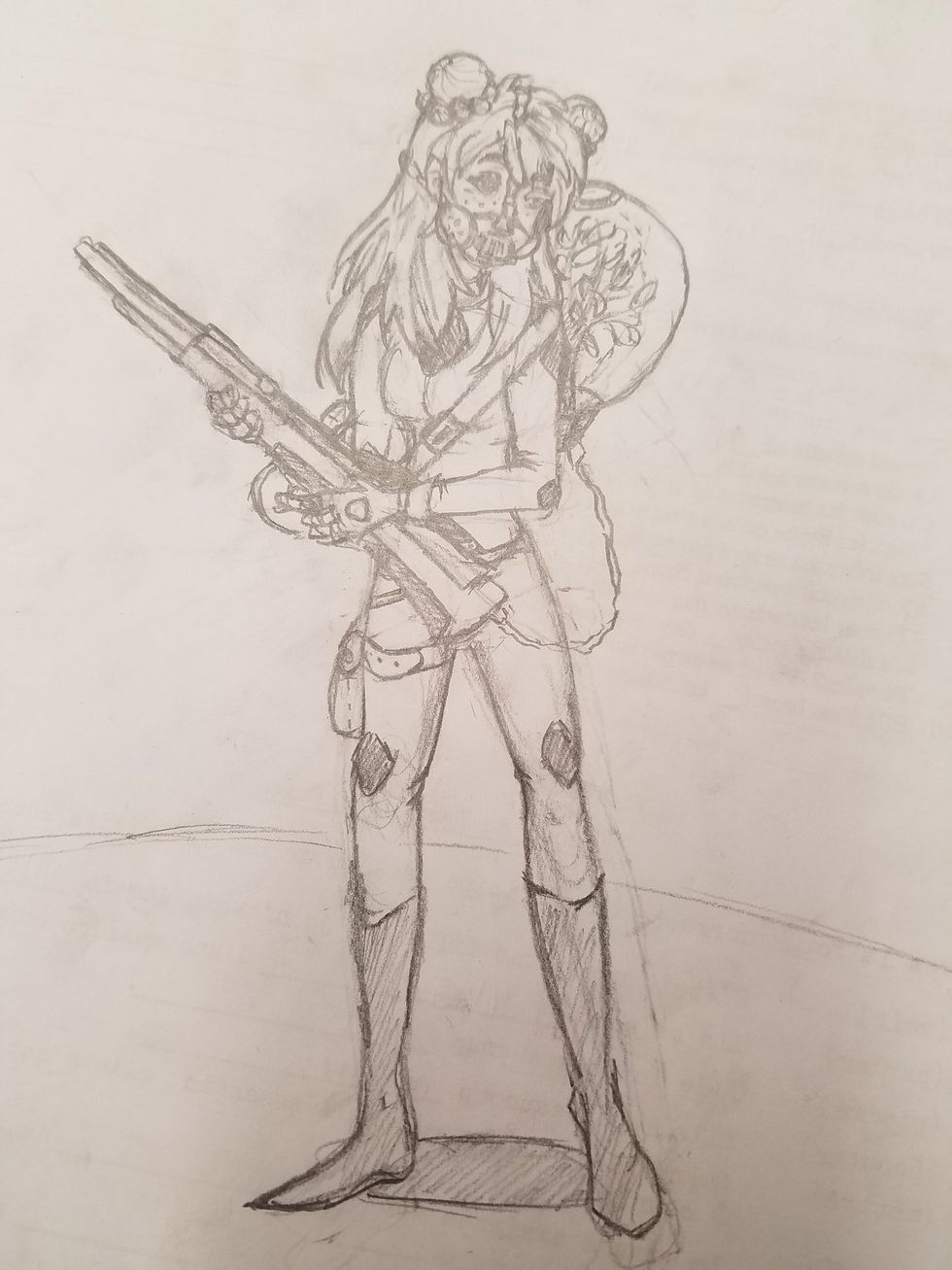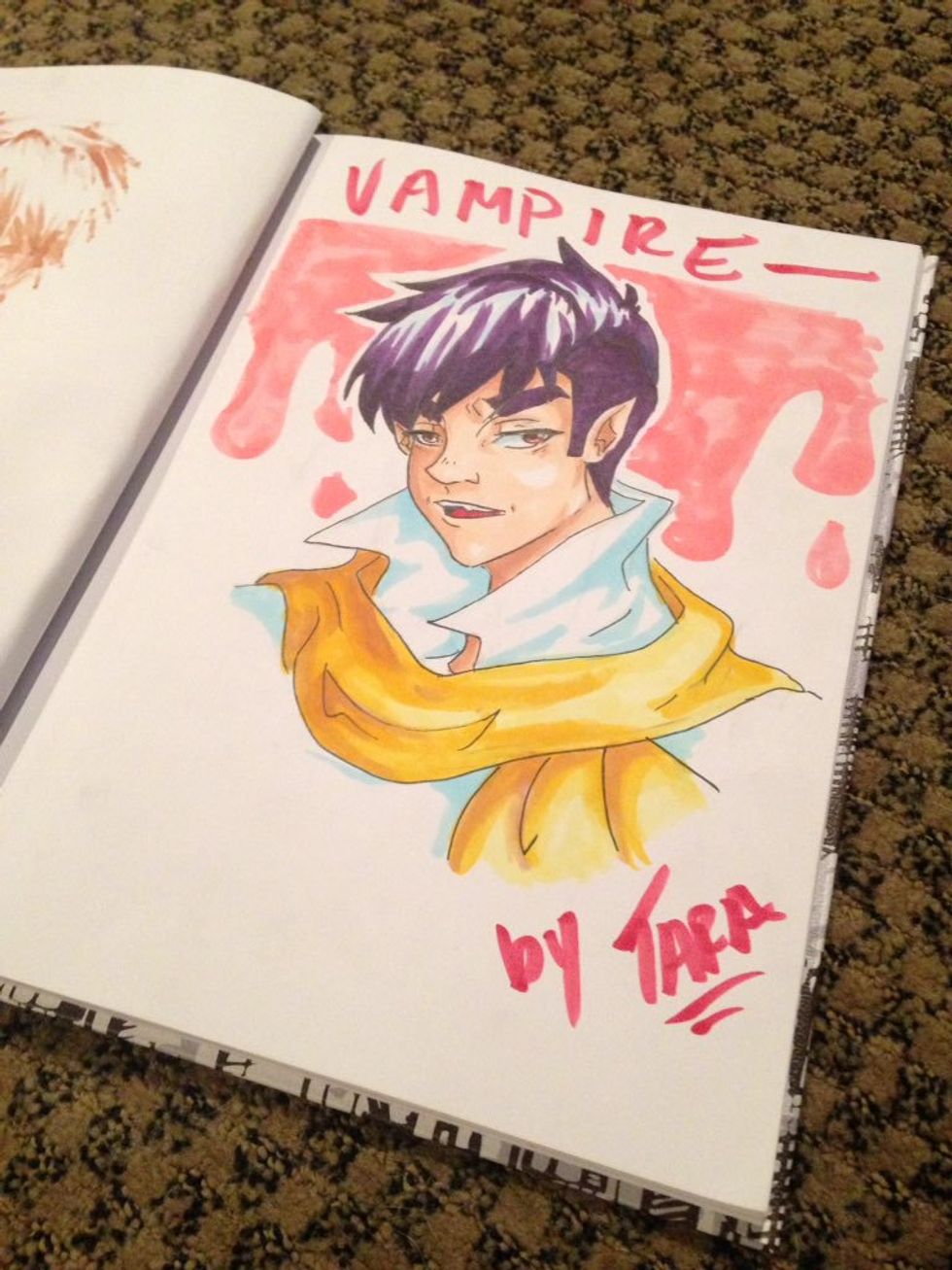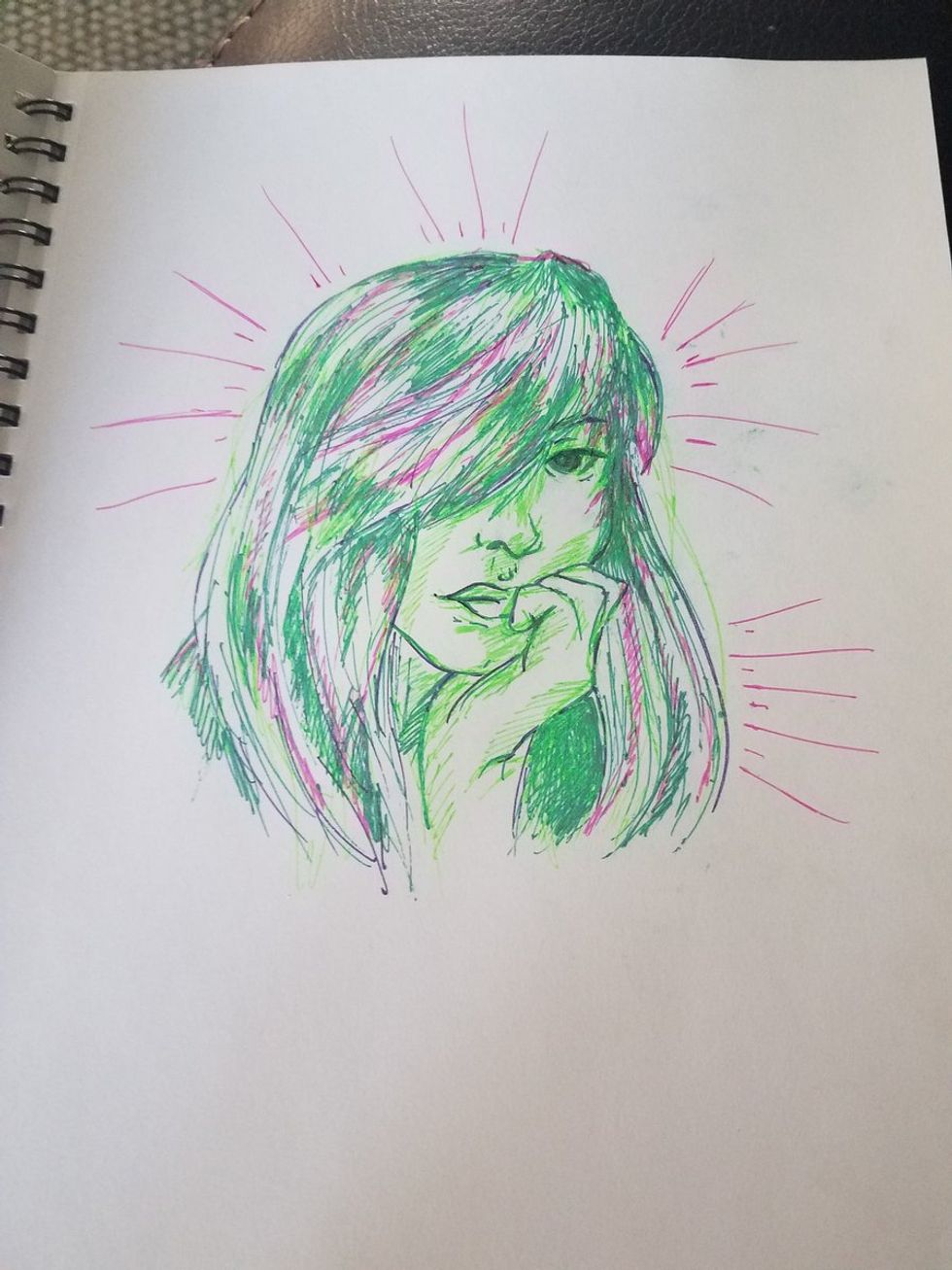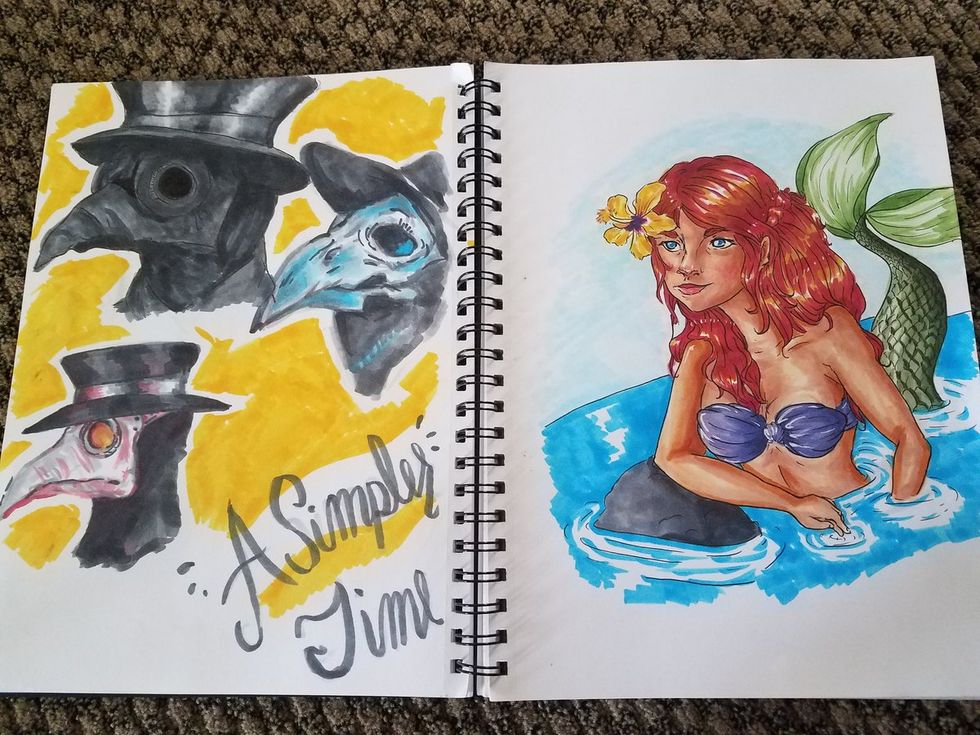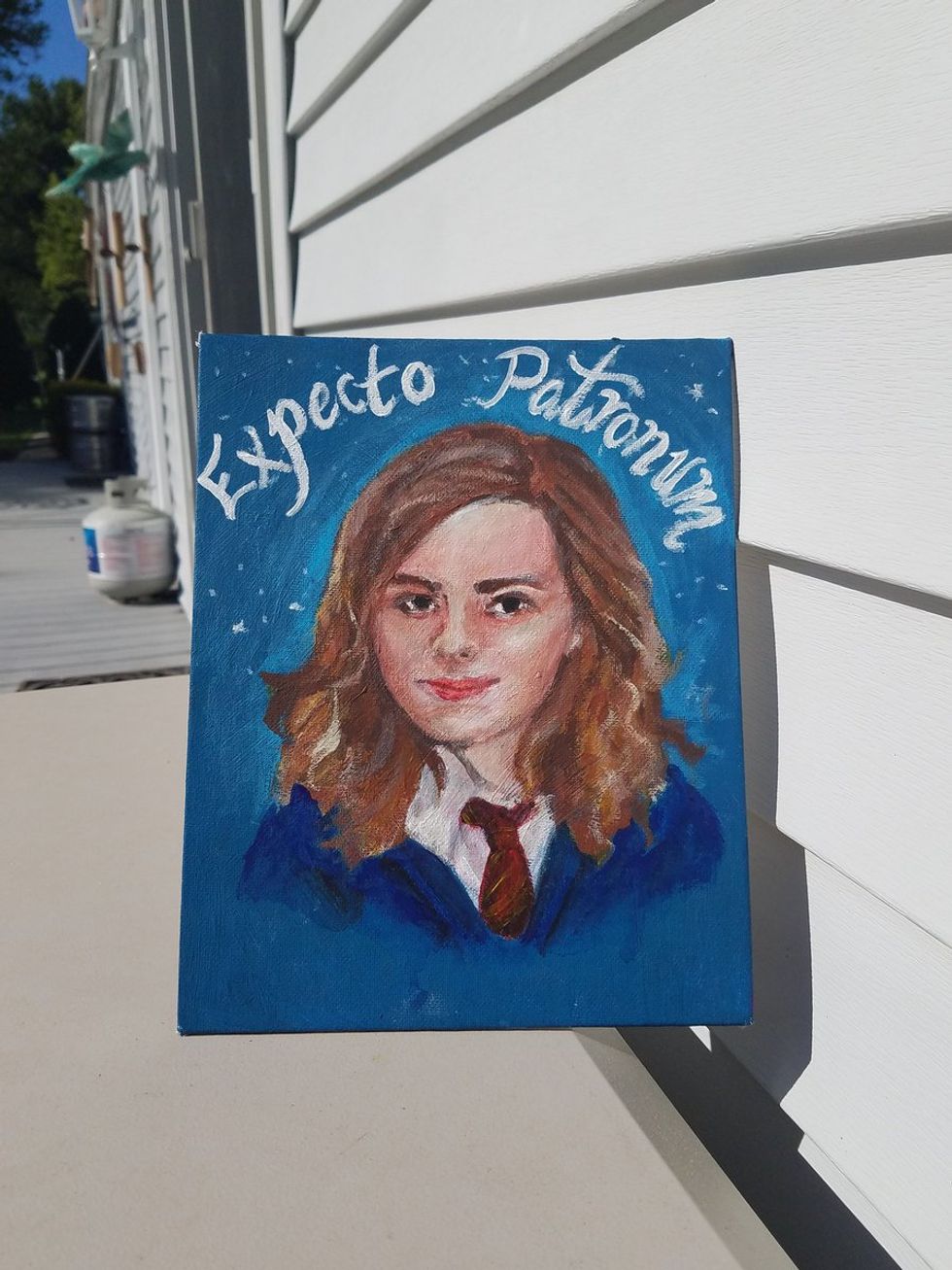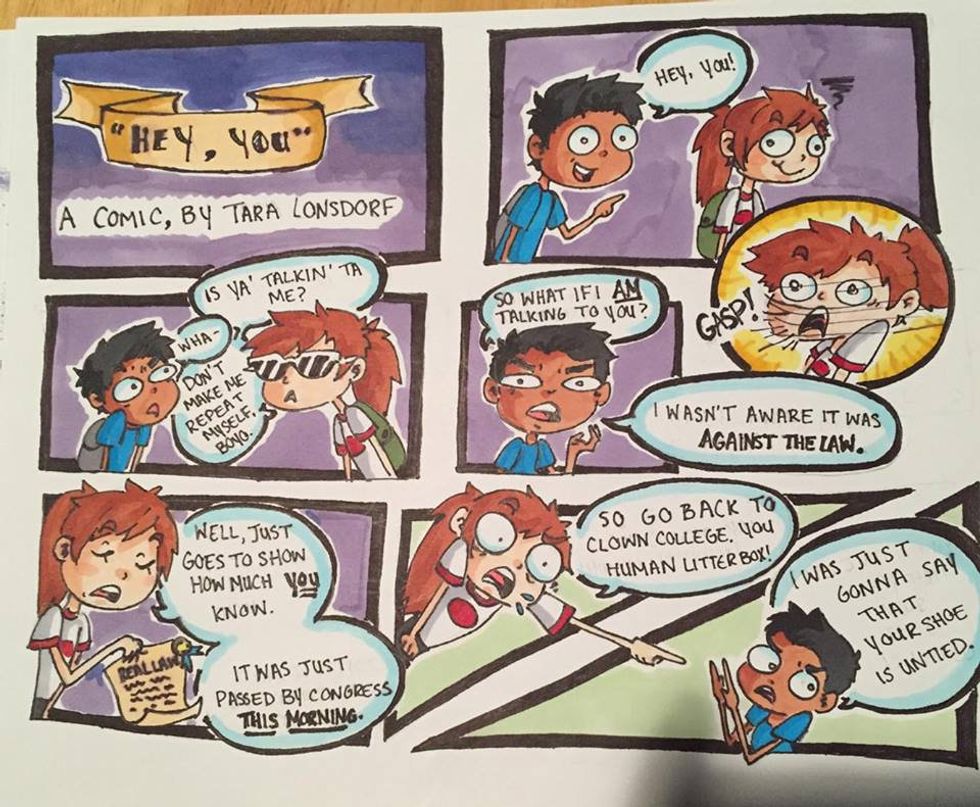I've always liked to draw, but I first started taking it seriously in 6th grade when I began using it as a coping method for ADHD. Over six years later, it's safe to say that I'm a much better artist, but I also know a lot more about art, too. Here are some things I wish I knew when I was just starting out, which other artists who may be beginners (we all start somewhere) may benefit from knowing. *All art in this post is my own!*
1. If something is difficult for you to draw, that means that you have to draw it more, not less.
"Hands are hard so I don't draw them!" is something I used to say a lot. Every artist has at least one thing which they can never seem to get right, and which always seems to make them miserable to work on. But avoiding the difficult parts of a drawing just means that you will never practice them and so you will never actually become good at them - and your drawings will be that much weaker because of it. If semi-profiles just aren't your thing, never learning them will just make your skill that much weaker. There will be a point where you will want to draw something difficult and make it good - so don't worry about the times where you draw something and it isn't.
2. Anime is fine to draw, but not worth hyper-focusing on.

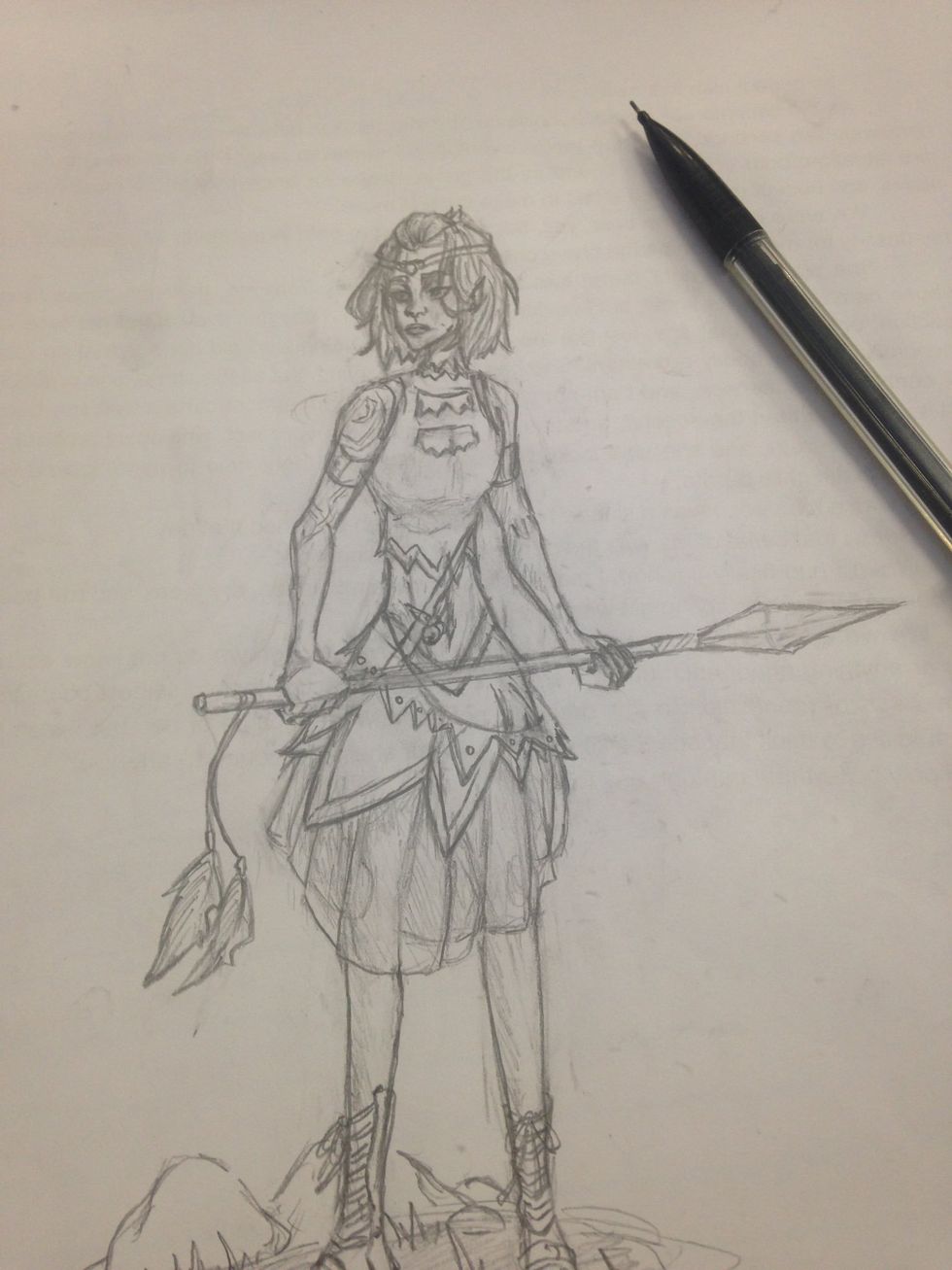
This point may just be for me, because I know of many other people who will tell you that anime is fine to draw and should be taken seriously within the art world. And while there certainly is a place for anime drawings within the general art market, I know that I would have improved a lot more if I had drawn other kinds of cartoons, infused more realism into my drawings, or actually bothered to learn anatomy from the get go. Now that I'm older, I don't even really like anime-style drawings that much anymore. (They serve a functional purpose within cartoons, but don't do much for me aesthetically.)
The problem is that I can't escape a lot of the stylistic tics I learned from drawing so much anime, to the point where I don't necessarily like those parts of my drawings, but am struggling to unlearn them. Anime is now actually a handicap rather than a stylistic choice within my art. If I hadn't spent so long drawing anime (such as in the top drawing from 8th grade), my drawings now (such as the bottom drawing from 12th grade) wouldn't feel so bogged down by it.
3. Know what kinds of art supplies are and are not worth your money.
It is absolutely true that an artist who is genuinely skilled can draw well with supplies of any quality, from cheap Crayola colored pencils to the highest-end oil paints. When I was still learning how to draw, I thought that if I had expensive supplies, I would become better for it. I ended up with Copic markers that I didn't know how to use (and ended up wasting) rather than refining skills I already had. I now know how to use Copics to the point where I believe their $7 cost for a single marker is worth it, but that's because I learned how to use them. The supplies didn't necessarily make me a better artist. The drawing above has a lot of things wrong with it, that aren't fixed because it was done in expensive markers.
4. It is absolutely worthwhile to learn how to draw digitally.
I'll admit that I am still not fully comfortable using a tablet to draw. While I am unfortunately no longer in a position where I can practice with one (tech difficulties), learning how to draw effectively on the computer is definitely something that I feel is important to me. This is mostly because it's frustrating not to be able to. I feel that it is extremely worth looking into tutorials, faqs, and other information on how to make the most of your tablet and the program that you are using.
5. DO NOT SHADE WITH BLACK!!!!
Don't. Stop it. Stop it right now. Rather than drain all of the color from your piece, make it artistically interesting by adding tonal shadows and highlights to better indicate the subject and the overall lighting.
6. When in doubt, turn your weaknesses into strengths.
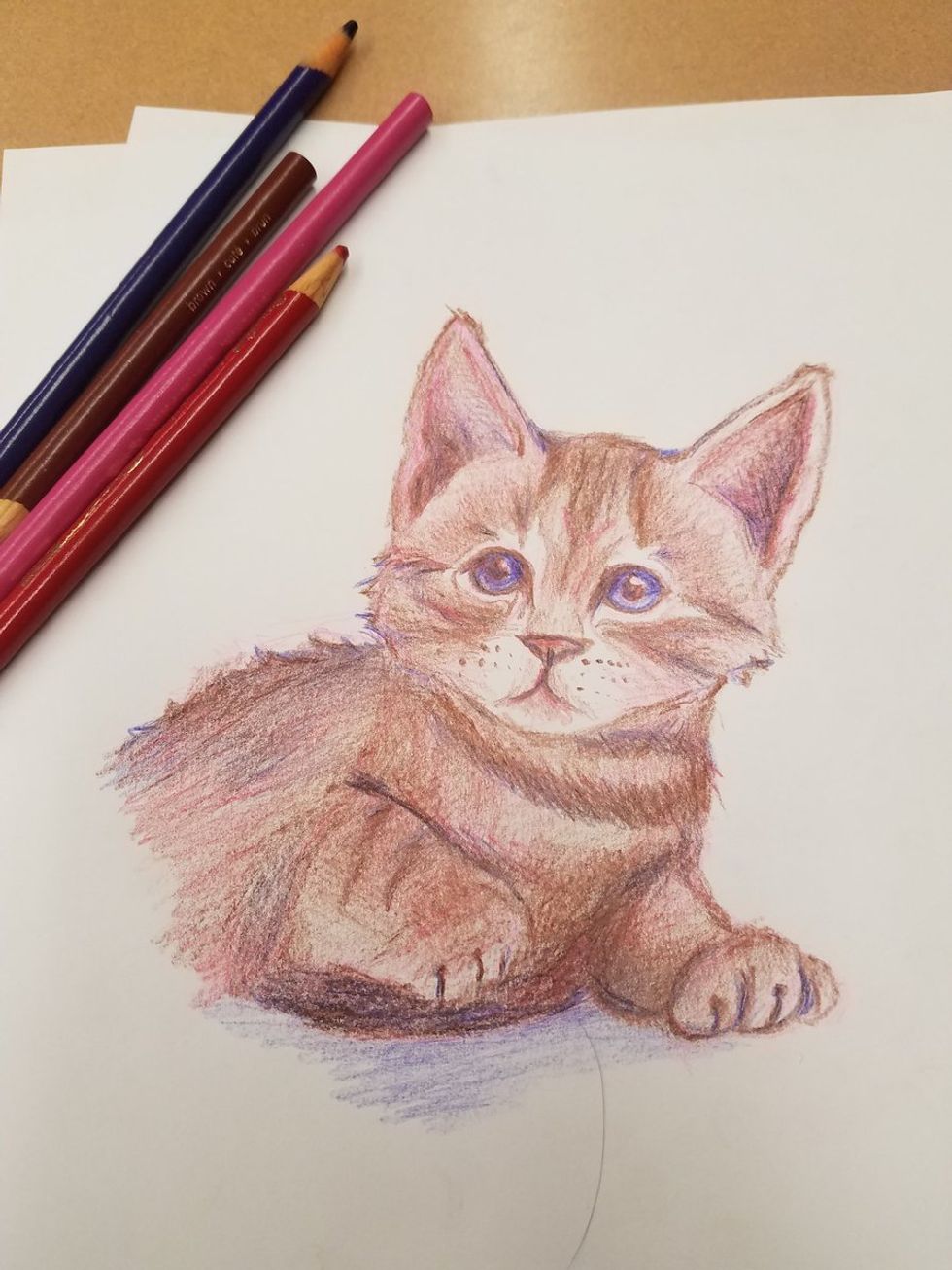
This is truly how you develop your style; not by what you're strong at drawing, but by how you compensate for your weaknesses. For example, I'm really rather terrible at mixing exact colors and matching them well. To make up for it, I generally combine several colors and do my best to blend them. While this does result in some inexact coloring, it does also make for a characteristic look where I can make my own interpretation of the colors actually pop. For example, in the cat above, I didn't have a beige or a brown that matched my reference, but I made up for it with extra pinks and purples. Now, my coloring is one of my favorite things about my drawings.
7. It's worth keeping a sketchbook.
I didn't start keeping a sketchbook until this year, so I don't know much about how I've improved or even what my old drawings really looked like. More than that, though, sketchbooks actually do make a difference in how comfortable you feel drawing and in your ability to develop your sense of artistic individuality. I wish I had done so sooner.
8. You will not be perfect at every art medium. Try them anyway.
I didn't think that I would be good at painting until I tried it. Now I really enjoy it, even if it's not my strongest area. It's still fun for me, and fun to see how I've progressed.
9. Avoid the smudgy smudge.
Smudging your art may provide depth when you know what you're doing, but often many beginner artists often use it as a crutch rather than a technique when they don't actually know where shading is supposed to go or in what intensity. I've seen some decent drawings get thrown through the wringer in terms of ridiculous smudging, especially when they use the smudge tool digitally. I'm sure there are many practical applications for such a tool, but before you start to smudge indiscriminately, you should probably understand the theory of where and when you do that. I actually can't find an example of this in my own work, because I've probably deleted it all.
10. You will improve.
It sometimes feels as though your art may be stagnating, or as though you've hit a point where no improvement is occurring. As long as you are drawing, this will not be true. If you need motivation, look back on your old work and compare. If you still don't see changes that satisfy you, try addressing that in terms of what you practice. Your art will surprise you when you least expect it to. The above two photos were both done in MS Paint - yes, THE MS Paint that we all used in elementary school. There's less than a 2-year difference in skill between them.
11. Sometimes simpler is better.
My biggest problem, personally, is overworking a drawing. There are many places where simple cell shading would suffice, but I overdo it and suddenly it's a mess. It's okay to take a step back and make a drawing less complicated. Drawing comics is a good way for me to practice stylistic simplicity.
I may not be going to art school, but drawing is still important to me. I may not be the best, but I am still getting better. I only wish I had known when I was younger that improvement is not something that happens to only people who are naturally good at drawing; it happens for everyone who works hard enough at it.


